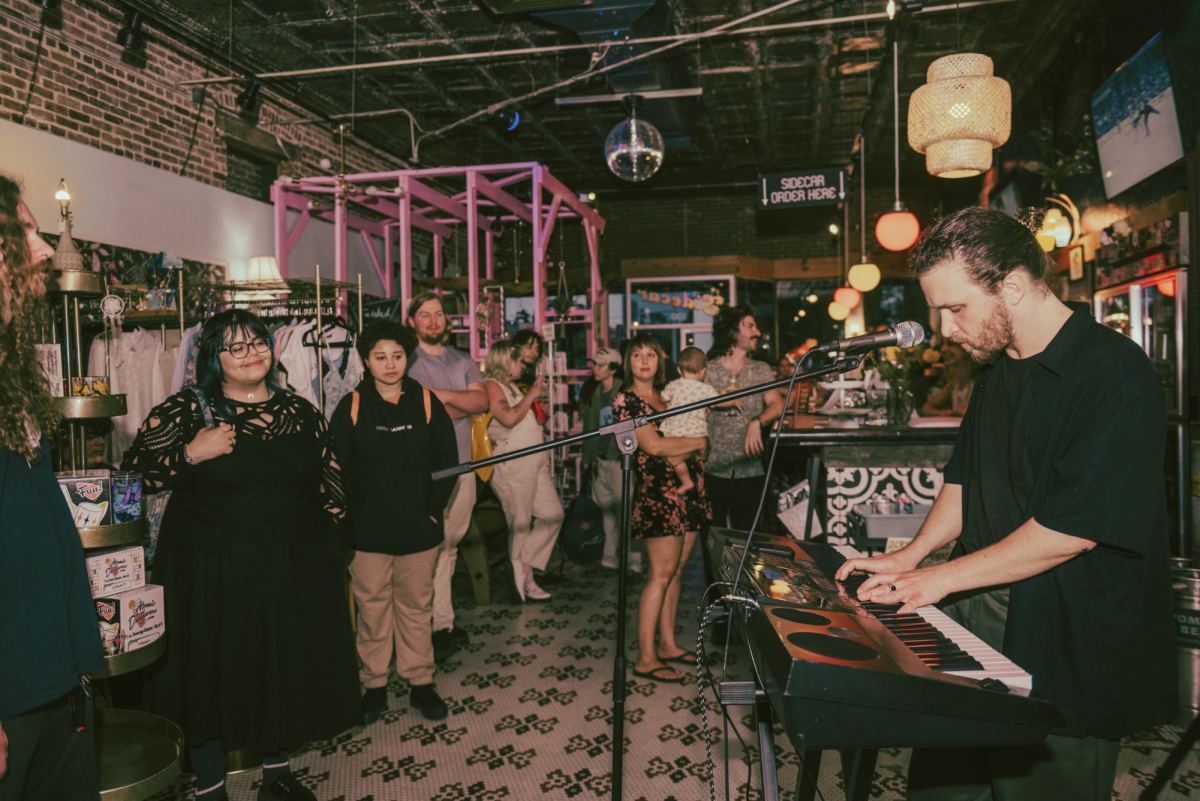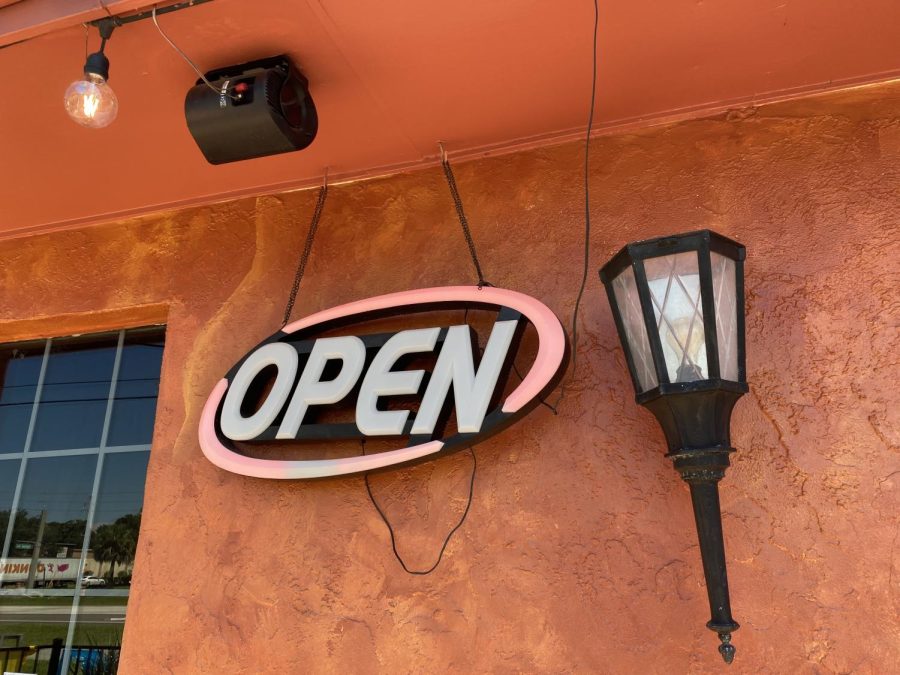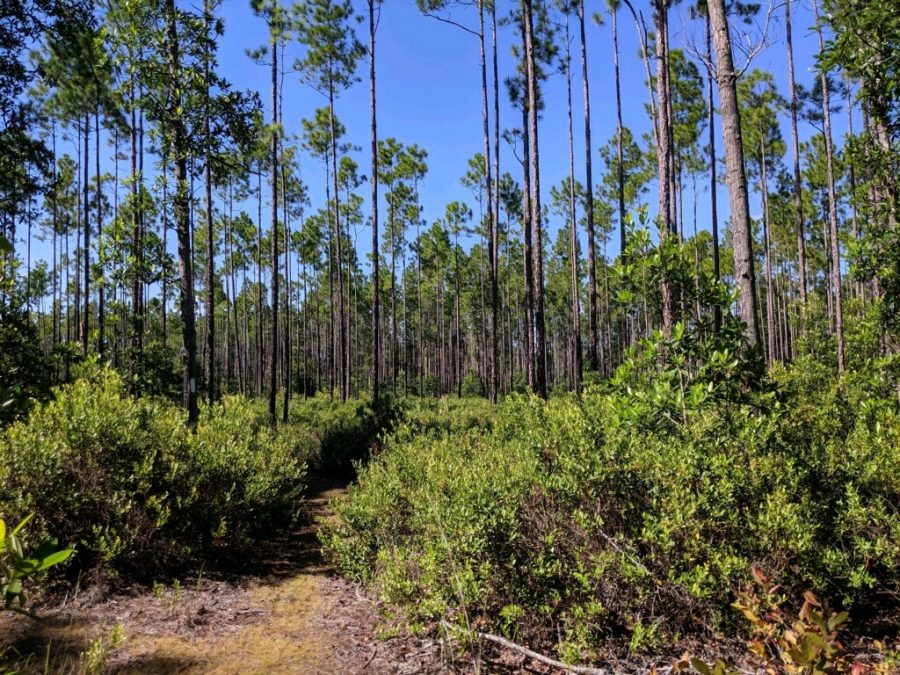If the world as we know it collapsed tomorrow, would anyone on this campus take to the streets, or just to YikYak? In my experience at Stetson University, Hatters have shown enthusiasm for three things: free merchandise, cultural credit and vapid gossip that won’t pertain to anything in six months, let alone four years. Somehow, politics never seem to make the cut, except for the performative and hollow infographics that make their way onto Instagram stories and are forgotten about sooner than the story expires. But this wasn’t always the case for Stetson.
In 1969, students of diverse backgrounds and beliefs gathered on Stetson’s lawns under the sweltering Florida sun in protest of the Vietnam War; this protest was the last recorded large-scale demonstration on this campus. 60 years have come and gone, and both foreign and domestic political tensions have since been exacerbated, yet the picket signs and outcry for change have subsided substantially within our student body.
Meanwhile, students across the nation, from heavyweights like Harvard and Columbia to hometown community colleges, have stood up against injustice in ways that have garnered constant news coverage. Whether through encampments, sit-ins, or picket protests urging schools to divest from both private and governmental organizations, courageous students are raising their signs and voices to protest issues that span the political spectrum, often facing very real consequences for doing so. Students across the nation have proven that they still hold the capacity to voice their concerns in a way that leaves a lasting impact.
Stetson, however, remains mostly quiet. Nestled in the mossy, sun-warmed charm of a small Southern town, the university prides itself on being what some would call a “hidden gem,” a safe, beautiful and deeply non-confrontational place where you and your carefully curated, diverse group of friends can share picture-perfect moments fit for the cover of an admissions pamphlet — but some students see through the facade.
Rea Swayze ’26 is the Vice President of Stetson Democrats and considers themselves very politically active. Swayze states it plainly, “Ignorance is a choice first and foremost.”
“Stuck in the Middle With You”
Since that final protest, Stetson has stuck itself in a rut of complacent moderacy, silence and, worst of all, apathy that it has not yet mustered the energy to pull itself out of in either direction, left or right. While, at first glance, it may be easy to see why some students simply choose to avoid extremes for fear of radicalism, it becomes increasingly difficult to understand how people can be so indifferent towards issues that directly impact them, their peers, friends, families, careers and futures.
“Politics does not discriminate whether you choose to elect out […] or not,” Swayze said. “And I think that’s what I want more people to understand. The political process does not exist in a vacuum, and just because it does not affect you, doesn’t mean it doesn’t harm someone else.”
This isn’t just a matter of apathy. The disengagement here is more complex than a simple lack of interest. Several bi- and nonpartisan issues have arisen within the last year that students across the political spectrum have been outspoken about. From carry legislation and state government spending, to federal overreach, environmental degradation and the protection of individual rights, something is bound to affect–or at least interest– students in some way. Sure, some students may prefer to prioritize other organizations or extracurriculars over politics, but that excuse crumbles completely considering that many campus groups collaborate with philanthropies directly influenced by politics. The Second Harvest Food Bank and the Neighborhood Center, organizations with which many Stetson students are involved, are targeted by politicians trying to slash social spending or criminalize poverty outright.
It is beyond frustrating to watch students devote time and energy to causes they care about, like hunger, housing insecurity and community uplift, yet remain utterly silent when those very causes are under direct political attack.
This is not all paranoia, either. Over the past decade, universities nationwide have built PR-friendly brands of neutrality, and Stetson is no exception. Protests and demands are increasingly met with bureaucratic deflection or quiet suppression, so students have learned to weigh the cost of action against the benefits of inaction. At Stetson, a campus that routinely markets itself as a safe, peaceful space to “wear different hats,” it is disturbing to me that politics and outspokenness are not on the hat rack. Conflict is thought of by both students and faculty alike as more of a liability than a liberty.
A Word From “The Man” – An Administrative Perspective
I do not personally see this issue of political disengagement as the direct fault of Stetson as an institution, and Swayze agrees: “I think Stetson provides the perfect amount of assistance. It is up to the university to facilitate political consciousness, not enforce it. The school offers flash panels and discussions on current affairs and invites political speakers on both sides of the spectrum, which then allows the students to use their agency and attend which events they want.”
To get a deeper look into this, I had a conversation with the Vice President of Campus Life and Student Success, John Downey, PhD, on his perspective of political activism, or the lack thereof, on Stetson’s campus.
Downey, appointed in 2023, has seen Stetson through acquiring many accolades, such as being named by Southern Living as one of the “Most Beautiful College Campuses in the South.” When asked if this image of demure beauty might perpetuate political disengagement in small schools like Stetson, Downey was somewhat surprised. “I don’t know the answer to that. If it is, it certainly is not intentional,” he said.
Certainly, Stetson has been trying to get students politically educated and active. Downey even noted a concerted effort from Stetson to spark political discussion between students. “We actually … had an entire semester this past spring called ’the free inquiry and expression semester.’ We intentionally brought speakers from a wide variety on the political spectrum, from the right to the left to the center, and invited community members, faculty, staff and students to all participate. Our average attendance was not where I wanted it to be.”
And that is exactly the problem; even when spoon-fed the chance to participate in the buzzing political atmosphere around them, Hatters still shrug their shoulders and turn away.
“This Land is YOUR Land” (Not Mine, I Don’t Live Here)
It is not uncommon for students to develop a sense of distance from politics in a place that is not exactly their home. Some come to Stetson from other states or countries and may feel detached from local issues, believing they don’t have the right or responsibility to speak up. But injustice doesn’t stop at a zip code; when friends, professors and people are impacted by policies made in the state, county or city a student lives in – whether or not they plan to stay – they automatically get stakes in the game of life.
I can admit, as a lifelong resident of Miami, that when I was a wee freshman, my local political concerns revolved around issues like metropolitan development, city spending, public education infrastructure throughout the Greater Miami area and the protection of natural reservations in South Florida. I saw what many see to this day: “What does any part of this tiny, sleepy town have to do with me?”
But after just a few months of living here, I had an epiphany. DeLand, as a city, has such a beautiful, tight-knit community that does whatever it can to support its people. Freshman year, I couldn’t point out Volusia County on a map if my life depended on it, but just last semester, DeLand was the focal point of landmark congressional races, with Josh Weil and Randy Fine facing off to represent Florida’s sixth congressional district. Suddenly, DeLand wasn’t some little Central Florida town to me; it was the epicenter of an uproar from constituents and outsiders alike. Yard signs, canvassing, phone banking— you name it, both parties were doing it. This was an incredible turning point for a red-locked congressional district, and it had news outlets across the U.S. on bated breath awaiting the election results.
“I know individual politically active students, but as a collective, the student body seems disinterested in politics,” Swayze said. “I used to be on the E-Board of the Stetson Alliance of Gender Equality, but we had to disband this past semester due to the lack of student interest.”
According to the Center for Information and Research on Civic Learning and Engagement, voting by Americans 18 to 29 fell to 42 percent in the 2024 election. Based on 2023-2024 enrollment data, 337 Volusia-native students called Stetson University home, which makes it safe to assume that at least 141 students at Stetson were registered to vote for this turning point congressional election. Aside from these 141, there were 1,203 students from other FL counties, 562 out-of-state students and 204 international students. Although they have decided not to register or change their registration to vote in Volusia, they still reap the consequences of the election as constituents of the Sixth Congressional District.
While we retreat inward to our home districts, policies with real consequences continue to unfold around us. Since the 2024 election, we have witnessed the criminalization of protest, immigrants and U.S. citizens alike being surveilled and sometimes eradicated while foreign policy takes increasingly aggressive forms, like with the recent bombing of Iranian nuclear enrichment facilities.
Swayze summarized their general feelings as such: “History is a never-ending story. It does not repeat, but rhymes, and patterns exist if you know where and how to look.”
So no, this isn’t a call to pick up a sign and scream in the middle of Palm Court. This is a call for all Hatters to recognize that silence is a choice and that somewhere between our merch tables, Instagram stories and empty solidarity emails, we have lost the plot and allowed a longstanding culture of quaintness to define what it means to be “engaged” and what must be defended.
The world is watching. What will you let them see?





